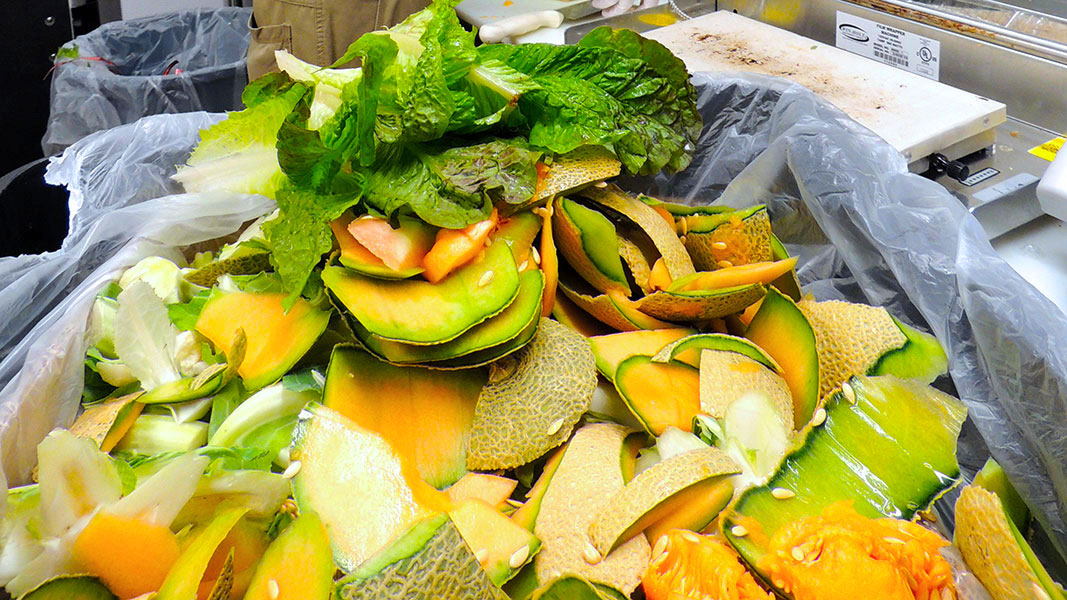Top: Photo by Doug Pinkerton
In December 2013, New York City (NYC) passed Local Law 146, a Commercial Organic Waste law mandating specific large-scale generators to arrange for the recycling of their organic materials via a private carter or employ department-approved methods to process the material themselves. Generators covered by law include food service establishments, retail food stores, food preparation locations, wholesalers, catering establishments and temporary public events. Compliance was phased in, starting with the largest generators. All covered establishments are required to source separate staff-handled organic waste, which includes all food scraps (including fruit and plant stems, meat, bones, and dairy products, whether raw or cooked), plant trimmings, food soiled paper and certified compostable products.
After an extended two-year grace period for the second tier of generators to comply, the New York City Department of Sanitation (DSNY) began enforcing the rules again, starting on July 31, 2022. Businesses covered include retail food service establishments (e.g., restaurants, delis, coffee shops) having 7,000 to 14,999 square feet (sq. ft.) of space as well as similar establishments in hotels having 100 to 149 guest rooms; chain food restaurants with two to 99 NYC locations with combined floor area 8,000 sq. ft or more; retail food stores (e.g., supermarkets) having 10,000 to 24,999 sq. ft; and temporary public events to be attended by more than 500 people. “While we extended the grace period at the height of the pandemic, City life is back and we must now enforce this important law that will help keep our neighborhoods cleaner and greener,” said Sanitation Commissioner Jessica S. Tisch.
If businesses are using certified compostable products, the Department recommends they research to determine whether these products are accepted by their carter or organics processing facility, notes DSNY. They also must make sure that signs and labels are as detailed as possible to clearly instruct on what materials need to be separated from one another.
Prior to the original 2020 deadline, DSNY conducted a survey of regional processing facilities in 2019 to determine whether sufficient processing capacity exists to manage the organic waste of the original tier and the next tier of businesses to be covered by rule under Local Law 146 of 2013. “We surveyed facilities within 100 miles of New York City and those with which we already had a relationship,” explains Vincent Gragnani, DSNY’s Press Secretary. “We determined then that anaerobic digestion facilities included in our survey could process 216,500 tons/year of material, and composting facilities could process between 228,750 and 232,250 tons/year.”
One update to the option of managing commercial food waste on-site was a decision by the NYC Department of Environmental Protection (DEP) that went into effect in September 2021. It prohibits use of devices that break down food waste by whatever means for the purpose of discharging it into the sewer system, including but not limited to food waste liquefiers. Liquefiers that were already registered with DSNY, connected to a grease interceptor, or appear on engineering plans approved by DEP, may only be replaced at the end of their useful life with on-site processing methods that do not discharge food waste into the sewer system. Businesses covered by the Commercial Organics Rules that choose to process on-site must do so through in-vessel composting, or any processing method approved by DSNY rule, that does not discharge food waste into sewers. All such equipment must be registered with DSNY within 30 days of installation and renewed annually.













